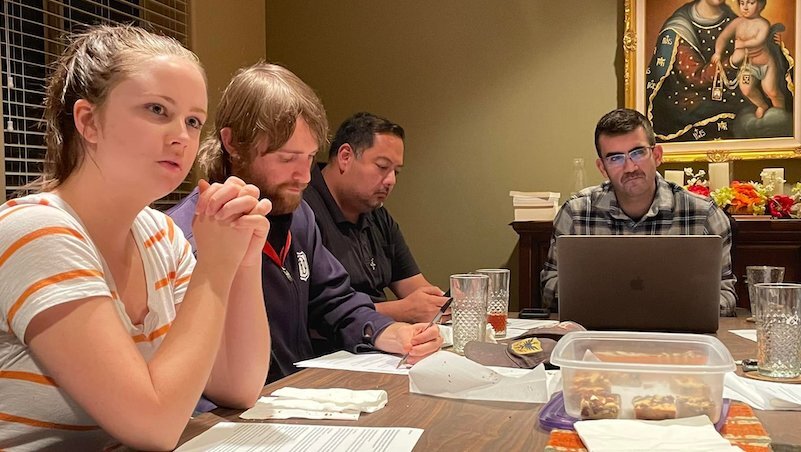
Congregants participate in a listening session | Diocese of Tucson
The Diocese of Tucson is continuing the synodal process, of which the new year is a pivotal time, by participating in listening sessions, during which the diocese is asking for everyone involved in the church to make their voices heard.
Pope Francis declared that from 2021-2023, the Church will dedicate itself to the Synod, a time in which everyone will be welcomed in their input for the universal Catholic Church, according to synod.va.
“Thanks to those parishioners from Immaculate Heart of Mary Parish in Somerton, Ariz., who took part in listening sessions for #synod2023 on Dec. 3 (Spanish) and Dec. 6 (English). Please pray for all those parishes and groups who will be holding listening sessions as part of #synodtucson in the first weeks of 2022,” the Synod Diocese of Tucson posted to Facebook.
According to The Conversation: “‘Synod’ comes from a Greek word meaning 'coming together' or 'traveling together.' The Synodal tradition for the Church began with ancient Christian leaders who would come together to discuss and pray about issues that affected the whole Church. By the 16th century, these gatherings were happening infrequently. One of the goals of the Second Vatican Council (1962-1965) was to re-emphasize the role of bishops as leaders of their communities and encourage more communication and cooperation between bishop.”
The Synod of Synodality was declared on Oct. 10, 2021, by Pope Francis. “Bishops all around the world are tasked with consulting with monks, nuns, parishioners, and lay people to bring more openness and transparency to the Church. The Bishops will convene in 2023 and discuss how to move forward as a church that ‘journeys together.’”
Some questions that participants for the Diocese of Tucson’s synod can ask themselves are: “In our local Church, who are those who ‘walk together’? Who are those who seem further apart?” “How is God speaking to us through voices we sometimes ignore, especially people who experience poverty, marginalization, or social exclusion?” “How do prayer and liturgical celebrations actually inspire and guide our common life and mission in our community?” “To what extent do diverse peoples in our community come together for dialogue?” “What methods and processes do we use in decision-making?”






 Alerts Sign-up
Alerts Sign-up